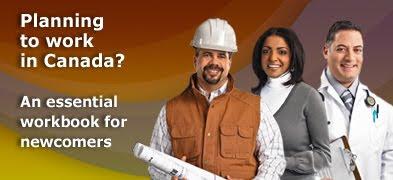What is commonly known as Show Money for Canada is technically called Canada Settlement Fund.
I am writing another entry about this subject because I get a lot of inquiry about it from my last post Show Money in Canada.
As the regulation dictates, an applicant must be able to show proof that he or she will be able to provide for his personal needs (Food, Clothing, Shelter) for the first 6 months of his stay in Canada.
The proof of his Show Money of Settlement Fund should be in an amount of "Unencumbered Transferable and Available Funds".
Merrian Webster's online Dictionary defines Unencumbered as:
Main Entry: un·en·cum·bered
- free of encumbrance
Main Entry: en·cum·brance
1 : something that encumbers : impediment, burden
2 : a claim (as a mortgage) against property
Which means that Real properties is not included in the proof of Funds; Show Money or Settlement funds. You can present Real Properties as part of your Personal Net Worth Statement but the Visa officer assessing your application will not include it as part of your documentary proof.
The following are samples of documents that you can use for this requirement (you can use either one of or a combination of:
1. Cash - a Bank Certificate showing your required proof based on the Settlement Fund Requirement Table.
2. Cash - Bank Statement showing the amount you have in your account; the transaction details or a combination of several Bank Accounts
3. Termination Value of your current Insurance - If you have acquired Insurance like (Pension, Life, Flexi - Insurance and others), you should check the policy. In it you will find that, normally, after three years of continuous payments the Insurance company will pay back a portion of the money you have been paying them, if ever you decide to return the policy to them and no longer continue with the Insurance program. This is called your Insurance Termination Value. You can ask your Insurance agent for a Certification of the amount that you will get if ever you will return your plan. You can use this Certificate as part of your proof of Funds.
4. Retirement Plan - If you work in a Company that offers its employees a retirement Plan, and you are already eligible to receive the benefits of the program (early retirement plan for example)you can ask your Human Resource Department to issue a Certification, in your companies security papers (Official Letter head) that you are already eligible to receive the amount allotted to you (net of obligations-loans, cash advances and the like), at any time that you choose to retire. But since the Visa office of Canada is aware that not all companies offers this program to its employees, I would say it is safe to use this if your Company belongs to the Top 5000 corporation of your country.
5. Stocks and Bonds - You may also use Stocks and Bonds as part of your Show Money requirement, the amount that you can use for the value should be based on the published current Market Value of your Investment.
6. Government Service Insurance System (GSIS)Contributions - As a Gov't Employee, you are entitled to Retirement Plan, you can use a Certificate coming from your HR on the allotted retirement benefit and use this as part of your Show Money.
7. Pag - Ibig Fund - If you regularly contribute to the Gov't Pag - Ibig Fund. You can go to the Pag - Ibig Fund office and ask for the Certification of Total contributions made. This too can be used as your Illustration.
There are other ways to prove this, to learn more about the Show Money of Settlement Fund for Canada requirement you can also read my previous blog post - Show Money or you can visit the website of the Citizenship and Immigration Canada - cic.gc.ca.
Read more...











